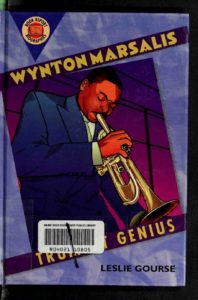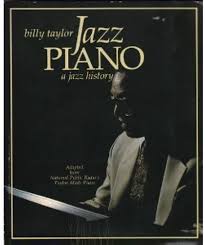Come join us now, and enjoy playing your beloved music and browse through great scores of every level and styles!
Can’t find the songbook you’re looking for? Please, email us at: sheetmusiclibrarypdf@gmail.com We’d like to help you!
Table of Contents
Wynton Marsalis (sheet music in the #smlpdf)

Best Sheet Music download from our Library.
Wynton Marsalis Trumpet Genius by Gourse, Leslie (Book)
Wynton Marsalis – Caravan (Solo)
Wynton Marsalis – Darn That Dream (Solo)
Wynton Marsalis – Dealfayos Dillema (Solo)
Wynton Marsalis – Standards (sheet music transcriptions), including:
APRIL IN PARIS
34 … AUTUMN LEAVES
42 … CARAVAN
58 … CHEROKEE
15 … DJANGO
4 … A FOGGY DAY
80 … LINUS & LUCY
67 … THE SONG Is You
86 … WHEN You WISH UPON A STAR
Wynton Marsalis Struttin’ With Some Barbeque (Live) Wynton Marsalis’ Trumpet Solo
Please, subscribe to our Library.
If you are already a subscriber, please, check our NEW SCORES’ page every month for new sheet music. THANK YOU!

Timelessness – Wynton Marsalis Septet at Jazz in Marciac 2022

August 6, 2022 Chapiteau – Marciac, France
The Wynton Marsalis Septet performing “Timelessness” from the album: Bolden (Original Soundtrack), at Jazz in Marciac 2022. Jason Marsalis (drums); Carlos Henriquez (bass); Sean Mason (piano); Chris Crenshaw (trombone); Victor Goines (tenor sax, soprano sax, clarinet); Don Vappie (banjo, guitar)
Please, subscribe to our Library.
If you are already a subscriber, please, check our NEW SCORES’ page every month for new sheet music. THANK YOU!

Wynton Marsalis (short bio)
Wynton Learson Marsalis (born October 18, 1961) is an American trumpeter, composer, and music instructor, who is currently the artistic director of Jazz at Lincoln Center. He has been active in promoting classical and jazz music, often to young audiences. Marsalis has won nine Grammy Awards, and his oratorio Blood on the Fields was the first jazz composition to win the Pulitzer Prize for Music. Marsalis is the only musician to have won a Grammy Award in both jazz and classical categories in the same year.
Marsalis was born in New Orleans, Louisiana, on October 18, 1961, and grew up in the suburb of Kenner. He is the second of six sons born to Dolores Ferdinand Marsalis and Ellis Marsalis Jr., a pianist and music teacher. He was named after jazz pianist Wynton Kelly. Branford Marsalis is his older brother, and Jason Marsalis and Delfeayo Marsalis are younger. All three are jazz musicians.
While sitting at a table with trumpeters Al Hirt, Miles Davis, and Clark Terry, his father jokingly suggested that he might as well get Wynton a trumpet, too. Hirt volunteered to give him one, so at the age of six Marsalis received his first trumpet.
Although he owned a trumpet when he was six, he did not practice much until he was 12. He attended Benjamin Franklin High School and the New Orleans Center for Creative Arts.
He studied classical music at school and jazz at home with his father. He played in funk bands and a marching band led by Danny Barker.
Wynton Marsalis performed on trumpet publicly as the only black musician in the New Orleans Civic Orchestra. After winning a music contest at fourteen, he performed Joseph Haydn’s trumpet concerto with the New Orleans Philharmonic. Two years later he performed Brandenburg Concerto No. 2 in F Major by Bach. At seventeen, he was one of the youngest musicians admitted to Tanglewood Music Center. Marsalis applied to only two music colleges, the Juilliard School and Northwestern University. He was accepted to both schools and chose to attend the former.
In 1979, he moved to New York City to attend the Juilliard School for a Bachelor of Music in trumpet performance, leaving in 1981 without earning a degree. He intended to pursue a career in classical music. In 1980, he toured Europe as a member of the Art Blakey band, becoming a member of The Jazz Messengers and remaining with Blakey until 1982. He changed his mind about his career and turned to jazz. He has said that years of playing with Blakey influenced his decision.
Wyntn Marsalis recorded for the first time with Blakey and one year later he went on tour with Herbie Hancock. After signing a contract with Columbia, he recorded his first solo album. In 1982, he established a quintet with his brother Branford Marsalis, Kenny Kirkland, Charnett Moffett, and Jeff “Tain” Watts. When Branford and Kenny Kirkland left three years later to record and tour with Sting, Marsalis formed another quartet, this time with Marcus Roberts on piano, Robert Hurst on double bass, and Watts on drums. After a while, the band expanded to include Wessell Anderson, Wycliffe Gordon, Eric Reed, Herlin Riley, Reginald Veal, and Todd Williams.
When asked about influences on his playing style, he cites Duke Ellington, Miles Davis, Harry Sweets Edison, Clark Terry, Dizzy Gillespie, Jelly Roll Morton, Charlie Parker, Wayne Shorter, Thelonious Monk, Cootie Williams, Ray Nance, Maurice André, and Adolph Hofner. Other influences include Clifford Brown, Freddie Hubbard, and Adolph Herseth.
In 1987, Marsalis helped start the Classical Jazz summer concert series at Lincoln Center in New York City. The success of the series led to Jazz at Lincoln Center becoming a department at Lincoln Center, then to becoming an independent entity in 1996 alongside organizations such as the New York Philharmonic and the Metropolitan Opera.
Wynton Marsalis became artistic director of the center and the musical director of the band, the Jazz at Lincoln Center Orchestra. The orchestra performs at its home venue, Rose Hall, goes on tour, visits schools, appears on radio and television, and produces albums through its label, Blue Engine Records.
In 2011, Marsalis and rock guitarist Eric Clapton performed together in a Jazz at Lincoln Center concert. The concert was recorded and released as the album Play the Blues: Live from Jazz at Lincoln Center.
In 1995, he hosted the educational program Marsalis on Music on public television, while during the same year National Public Radio broadcast his series Making the Music. Both programs won the George Foster Peabody Award, the highest award given in journalism.
In 2005, Marsalis played at Apple’s “It’s Showtime” Special Event on October 12, where the new iMac with Front Row, and iPod with Video were introduced. Following this, Marsalis also appeared in an iPod TV ad with his song “Sparks” in 2006.
In December 2011, Marsalis was named cultural correspondent for CBS This Morning. He is a member of the CuriosityStream Advisory Board. He serves as director of the Juilliard Jazz Studies program. In 2015, Cornell University appointed him A.D. White Professor-at-Large.
Marsalis was involved in writing, arranging, and performing music for the 2019 Daniel Pritzker film Bolden.
In addition to Jazz at Lincoln Center, Marsalis has also worked with the Philadelphia Orchestra as a composer for modern classical music. The orchestra premiered a Violin Concerto he composed in 2015, and a Tuba Concerto of his in 2021.
Marsalis is generally associated with straight-ahead jazz, jazz that kept to the original instruments used in jazz and eschewed electronica that gained prominence in the 70s and 80s. In The Jazz Book, the authors list what Marsalis considers to be the fundamentals of jazz: blues, standards, a swing beat, tonality, harmony, craftsmanship, and mastery of the tradition beginning with New Orleans jazz up to Ornette Coleman. Jazz critic Scott Yanow regards Marsalis as talented but criticizes his “selective knowledge of jazz history” and has said Marsalis considers “post-1965 avant-garde playing to be outside of jazz and 1970s fusion to be barren” and the unfortunate result of the “somewhat eccentric beliefs of Stanley Crouch”.
In The New York Times in 1997, pianist Keith Jarrett said Marsalis “imitates other people’s styles too well … His music sounds like a high school trumpet player to me”.
Bassist Stanley Clarke said, “All the guys that are criticizing—like Wynton Marsalis and those guys—I would hate to be around to hear those guys playing on top of a groove!” But Clarke also said, “These things I’ve said about Wynton are my criticism of him, but the positive things I have to say about him outweigh the negative. He has brought respectability back to jazz.”
When he met Miles Davis, one of his idols, Davis said, “So here’s the police …”. For his part, Marsalis compared Miles Davis’s embrace of rock and pop music (most notably in his 1970 album Bitches Brew) to “a general who has betrayed his country.” Marsalis has called rap “hormone driven pop music” and said that hip hop “reinforces destructive behavior at home and influences the world’s view of the Afro American in a decidedly negative direction.”
Marsalis responded to criticism by saying, “You can’t enter a battle and expect not to get hurt.” He has said that losing the freedom to criticize is “to accept mob rule, it is a step back towards slavery.”
